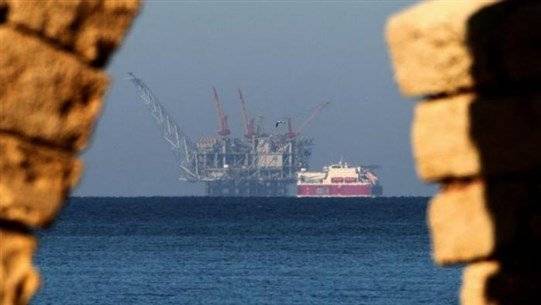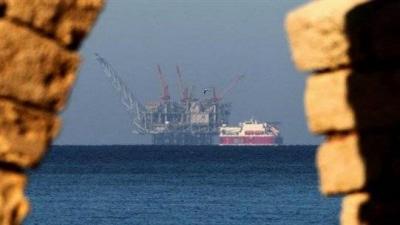Less than 24 hours after the statements made by Hezbollah Secretary-General Sayyed Hassan Nasrallah regarding the border demarcation negotiations, Israel announced security precautions to protect the disputed Karish gas field with Lebanon. The Israelis understand that what Sayyed Nasrallah stated was not mere maneuvering, especially if it is linked to specific timelines. In his televised talk, Nasrallah explicitly threatened, "If oil and gas extraction from Karish begins in September, before Lebanon receives its rights, we are heading towards a problem." He announced, "We have set a goal and are heading towards it without any hesitation, and we will resort to all that achieves this goal."
He expressed skepticism about the outcomes of the ongoing negotiations for maritime demarcation, considering that "the Americans have entangled Lebanon in a cycle of negotiations, while Israel has drilled the wells, searched for gas, and is preparing to extract it." He emphasized that "the United States pressured the Lebanese state to accept the 'Hoff Line' or the Israeli proposal for maritime borders," affirming that "what the Lebanese state wants can be achieved now, not tomorrow." He added, "There is no Israeli target in the sea or on land that precision resistance missiles cannot reach," specifying that "what is required is to adhere to the borders demanded by the Lebanese state and to lift the veto on companies that extract oil."
Nasrallah stated clearly: "We have set a goal and are heading towards it without any hesitation, and we will resort to everything that achieves this goal," revealing that "there is a type of drones in the party's possession that can go and return without being shot down by the enemy." He threatened that Hezbollah could attack Israeli gas platforms, not limiting itself to the Karish platform alone. He claimed that Hezbollah has the capability to deter the enemy and hit the targets it wants in any location in the occupied Palestinian sea and on land.
Nasrallah outlined a possible roadmap for the return of U.S. mediator Amos Hochstein to Lebanon next week. While there is optimism that he may carry an Israeli response to the Lebanese proposal regarding maritime demarcation, sources related to the file dismissed the possibility of Hochstein bringing a positive Israeli answer, considering that Lebanon has not communicated a clear agreed-upon formula for demarcation. The problem would deepen if the U.S. mediator's atmosphere is negative, especially as Israel insists on continuing its exploratory operations along the border in anticipation of winter, linked to the energy and gas crisis threatening Europe, for which the U.S. seeks a solution that could include Israeli gas.
Nasrallah's remarks, which resonated similarly to the drone launches over Karish and carried more serious implications, were met with official silence, while Lebanon's official position regarding demarcation negotiations was being shaped through the statements of Hezbollah's Secretary-General, who set a deadline of September 2nd, warning that otherwise, Lebanon would face a severe problem, especially if any Israeli response is unwelcome to Hezbollah.
Hezbollah's preparedness was matched by similar Israeli readiness, as Israeli media reported yesterday that military forces have conducted maneuvers in recent months on a range of scenarios, including a missile attack on targets in the economic maritime region. The Israeli site Walla reported that the Israeli security apparatus raised the alert status around the Karish field platforms due to the failure to reach an agreement between Israel and Lebanon on maritime demarcation. Furthermore, it was decided to form a "multi-arm agency," including the Ministry of Defense, the Israeli army, and intelligence agencies, to prepare for the possibility that Hezbollah might attempt a military operation or provocations to prevent gas extraction.
Israeli Defense Minister Benny Gantz stated, "We are seeking a solution with Lebanon regarding the disputed maritime areas," considering that "Hezbollah Secretary-General Hassan Nasrallah is obstructing the reach of a solution and will harm the energy and wellbeing of the Lebanese." He expressed hope, "that we do not descend into war or days of fighting, but we must defend our ability to extract gas without harming the Lebanese."
Israel is seriously addressing Nasrallah's threats, who has established new deterrence rules for Israel in the demarcation negotiations and has granted internal Lebanese stances immunity and strength as the American mediator's return approaches. Practically, the negotiations with Israel have entered a serious phase. The readiness declared by Hezbollah and the Israeli side is sufficient to expect the outbreak of war at any moment; however, it can also carry signs of a near resolution, and the outcome depends on what Hochstein brings and Lebanon's and Hezbollah's positions on it.




